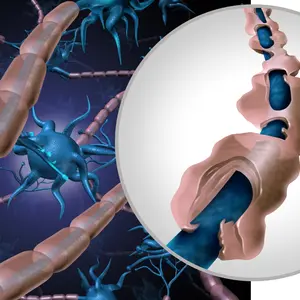

Chronic Conditions and Diseases

Chronic Conditions and Diseases
Combatting Childhood Obesity
Obese children can lose weight and improve their health by following one of three eating patterns, according to a new study from the Cleveland Clinic. The eating patterns are the Mediterranean diet, the American Heart Association diet, or a plant-based diet.
The study, published in October 2021 in Clinical Pediatrics, was a one-year randomized trial involving 96 children between the ages of 9 and 18 with a body mass index (BMI) exceeding the 95th percentile, which is the definition of obesity. The participants and one of their parents were randomly assigned one of the three healthy eating patterns (HEP).
All three HEPs encouraged a diet of whole foods, fruits and vegetables, whole grains, beans and other legumes. Added salt, saturated fatty acids, added sugars, red meat, processed meats, and other processed foods were limited.
Researchers concluded that the three diets yielded similar results in terms of improving the child’s health. Significant decreases were recorded in weight, blood pressure, cholesterol, and glucose levels. Risk for heart disease also declined. It was discovered that compliance did not have to be complete in order for positive results to be seen. The average compliance was 55-65% during the course of the year.
It was observed that the children had an easier time adapting to the HEPs than their parents, suggesting the importance of introducing healthy eating habits at an early age.
The Centers for Disease Control and Prevention (CDC) estimates that one in five US children and adolescents—more than 14 million—are obese. There are many factors at play, including genetics, behavior, access to healthy, affordable food, access to safe and convenient places for physical activity, and childcare and school environments.
According to CDC data, obesity prevalence is highest among Hispanic children (25.6%), followed by non-Hispanic Black children (24.2%), and lowest among non-Hispanic Asian children (8.7%), with White children falling in the middle (16.1%).
Analysis by education and income reveals that the prevalence of obesity decreases as the level of education of the head of household increases. As income increases, childhood obesity decreases, with 18.9% of children in the lowest income group being classified as obese compared with 10.9% in the highest income group.
The health consequences of obesity are significant, says the CDC, and include increased risk for cardiovascular disease, type 2 diabetes, asthma, sleep apnea, joint problems, and fatty liver disease. There can also be significant social and psychological problems such as anxiety and depression, low self-esteem, and bullying. Children who have obesity are more likely to become adults with obesity, says the CDC.
REFERENCES
Cleveland Clinic. (2021, November 29). How healthy eating patterns can benefit children who are obese. https://newsroom.clevelandclinic.org/2021/11/29/how-healthy-eating-patterns-can-benefit-children-who-are-obese/?
Centers for Disease Control and Prevention. (2021, March 19). Overweight & obesity. US Department of Health and Human Services, National Institutes of Health. https://www.cdc.gov/obesity/childhood/causes.html


 By
By





